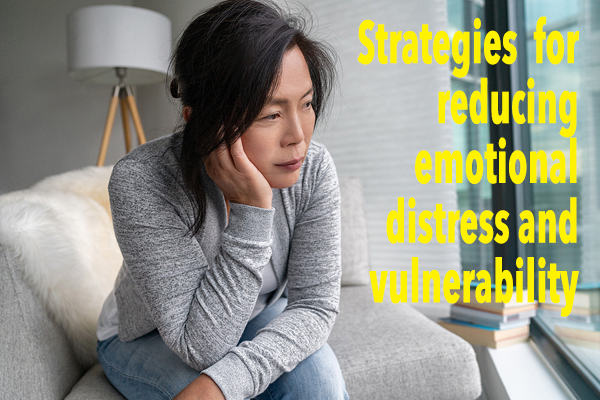About this module
Any sustained involvement with a sociopath (psychopath, narcissist) causes emotional vulnerability. Even though your situation is difficult, you can still achieve balance.
In this webinar, Dr. Liane Leedom teaches you strategies for reducing your emotional upset so you can make good decisions and turn your life around. You’ll learn to identify your emotions and describe what you’re feeling. Then, you’ll learn specific skills to take control of your emotions, such as fact checking, opposite actions and problem solving.
You’ll also learn the value of seeking positive experiences to generate happy emotions. Whether you’re away from the sociopath or still coping with the situation, the goal is taking control of your emotions so you can build a life worth living.
Highlights
- Negative feelings are bad and other myths about emotional regulation
- Understanding and describing emotions
- Emotional regulation through problem solving, step by step
- Strategies for building a life worth living
- Understanding love and what to do when it’s inappropriate
Learning objectives
After completing this course you should be able to:
- Define what makes your life worth living
- Describe strategies to manage emotions and distress
- Explain three ways to change your emotional responses
- Regulate emotions through opposite action and problem solving
- Accumulate positive emotions both short term and long term
Program agenda for Strategies for reducing emotional distress and vulnerability
Class 1
- How to endure over the difficult long term
- What psychopaths believe is important
- Psychopathic control of families and groups
- What makes a life worth living?
- ABCs of positive emotions
- Accumulate positive emotions: long term
- Accumulate pleasant events every day
- Build mastery
- Cope in advance for difficult events
Class 2
- Four foundations of mindfulness
- Purpose of mindfulness practice
- The middle path — moderation and balance
- Rate your own emotion regulation
- What is an emotion?
- Emotions communicate to ourselves and others
- Emotions motivate us for action
- Model for describing emotions — from vulnerabilities to aftereffects
- Emotions and psychopathy
- Why is emotion regulation difficult?
Class 3
- Emotions and mindfulness
- Emotion regulation strategies
- Mindfulness and regulation of love
- What is love?
- Prompting events for feeling love
- Biological changes and experiences of love
- Love: Check the facts
- Love: Opposite action
- Model of emotion with change strategies
Class 4
- What is an emotion?
- PTSD symptoms and persistent negative emotions
- How symptoms of abuse mimic borderline personality disorder
- Secret to dealing with painful emotions
- Regulation of anger
- The reconciliation trap
- What about when anger is totally justified?
- Regulation of fear
- What about when fear is totally justified?
- Regulation of envy
- Why is emotional regulation hard?
Here’s a preview:
Involvement with a sociopath is emotionally brutal. Still, mindfulness enables you to regulate your emotions, so you can decrease your suffering and vulnerability. Learn strategies for changing your emotional responses, even in tough situations.

